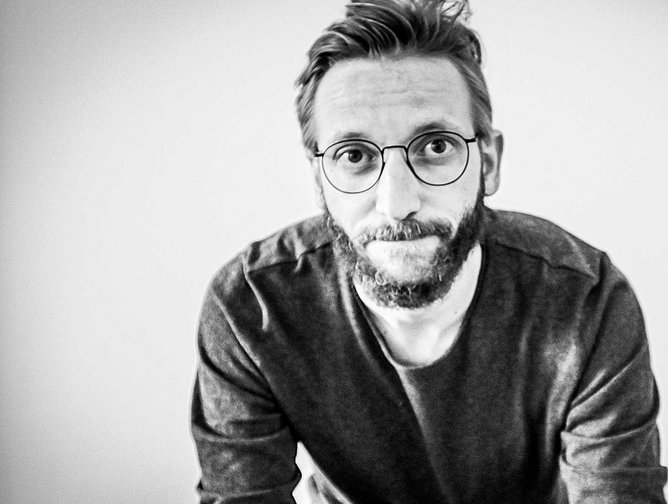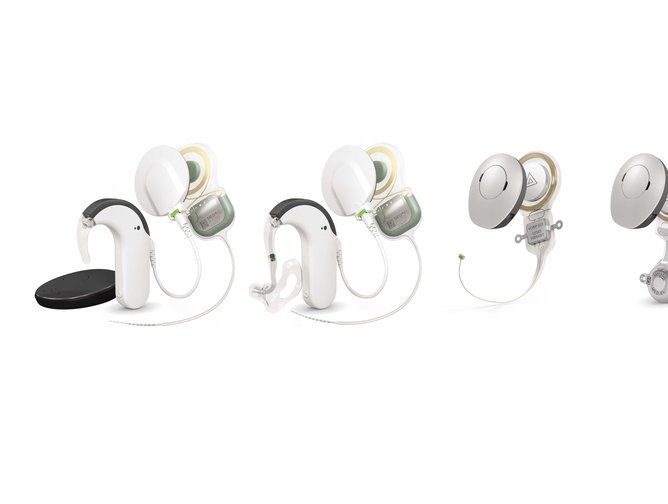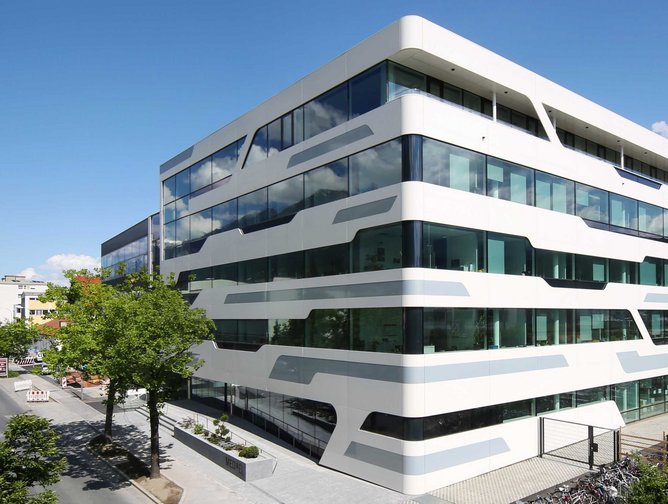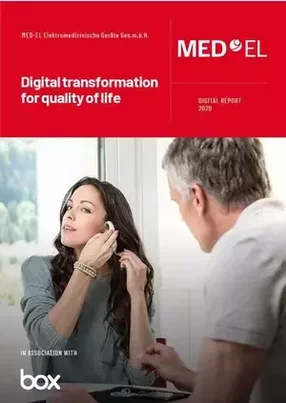Medtech company MED-EL is a leader in the field of implantable hearing systems, as the company’s Chief Digital Officer Martin Hairer explains: “Our core competency is to develop hearing implant solutions. That’s where our expertise is - developing implants, surgical tools, stimulating nerves and adapting sound in a way that the brain can interpret it as close to the experience of natural hearing as possible.” Of course, underlying and enabling that central competency is a raft of different business functions, but Hairer is clear that the business as a whole is inspired by this mission. “We are very research driven - that’s how the whole company works. We are pioneers. We are challenged by nature, by the human body, and what we all have in common here is the question: ‘What can we do as a company that leads to better outcomes for our customers?’. This is always the number one priority. It's not profit. Of course, we need to make money, but it's much more important the customer has the best outcome, which itself leads to increased profits.”
As Chief Digital Officer (CDO), his role at the business involves overseeing the company’s internal technological progress. “I am the senior technology executive here at MED-EL, responsible for creating and implementing plans, ensuring they align and driving them. We support our critical line of business, develop customer-centric solutions and streamline business operations through the use of technology and continuous improvement processes to fulfil our customer's needs.” Hairer’s approach involves finding new solutions, for the benefit of all stakeholders. “I try to motivate people to innovate, to think outside the box and find better solutions, not only from a technology perspective but also one that fits the needs of the customer.”
As CDO, Hairer has overseen the implementation and utilisation of several technologies. Cloud is one such area, with the company relying on a selection of cloud providers. “We are a worldwide company, so connectivity's always a huge topic for us, not only internally but in terms of connecting to our customers. With the cloud, we now have the option to scale much faster, while also increasing IT security tremendously, all while handling this across different continents. For us, it was the helping hand giving us the possibility to concentrate more on our core competencies and processes.”
As a global company, operational excellence is crucial, an area where automation technology has proved a boon to MED-EL. “Robotic process automation is heavily used here. New processes are automated every day, allowing us to avoid mistakes from human errors, and so on. Of course, automation is also crucial in the direction of manufacturing - answering the question of how we can develop and produce more of our implants with the same setup of human resources, for example.
MED-EL is exploring a number of new directions to empower its customers. One is a mobile application known as ReDi App. “Artificial intelligence (AI) is now heavily used by us to help and self-enable our customers. One example is the ReDi App, a product we’ve launched already in several countries. It helps the user to train language skills, meaning we analyse speech and give advice on how you can improve your language development, and you can get real-time, live feedback immediately. In the past, that’s something you could only get specifically with professionals offering speech therapy. Now, we can further support our customers to be able to do this in addition to the speech therapy at home or on the train and so on.”
Another innovation has seen the launch of a platform known as MED-EL & more, the capabilities of which Hairer explains: “We’ve been working for a couple of years to onboard partners and develop service into a platform that would be helpful for our customers. MED-EL & more is the first club model we have for our customers, fully equipped and facilitated by our myMED-EL portal. It is fascinating how fast-growing the demand is to not only get exclusive offers in terms of discounts, but get services that fit perfectly for someone in a specialist situation, like a person who lives with a cochlear implant and has additional needs like support to maintaining the audio processor, or training to hear phone calls in a noisy environment, for instance.”
Various partners have been supporting MED-EL on its ongoing digital journey. “We use the big players like Amazon Web Services, of course, as well as Microsoft Azure. We use a lot of SaaS solutions. For example, we use Auth0 as our central authentication mechanism for our customers. We have a huge set of partners we're working with - there is not one set of products from one company you can buy to become fully digital.”
One crucial partnership is with secure collaboration provider Box, as Hairer explains. “As you can imagine for us with our business partners and clinics, data and information, exchange and collaboration is a very important topic. Everything we can improve in that regard has a tremendous impact on cost savings and quality and outcomes for the users. Before our cloud transformation here at MED-EL, we tried to maintain everything with data exchange tools. It's horrible to do this on your own. You need an army of cybersecurity specialists who keep only one tool up and running safely, and that’s exactly where Box came in. It provides us a really nice way to collaborate across the company and partners.”
Aside from internal evolution, MED-EL is also witnessing a change in the expectations of customers, which it endeavours to address. “It’s fascinating to see the patient culture change. As far as I can recall, it was always that inventors and professionals pushed something into the med-tech industry, and patients received it. Now, it's starting that patients are more seen as customers and can influence future products and solutions. That's a shift you can see in a lot of other industries, of course, with customer-centricity and building products based on customer feedback. “ With digital-savvy customers expecting a certain level of offering, Hairer and his team are rising to meet the demand. “Customers are now saying: ‘I know that this is a great device or solution, but why does it need to be more complicated than ordering something on Amazon?’ It’s challenging us to find better ways to make things more customisable and to engage with our customers much more deeply.”
Like all companies around the globe, MED-EL is finding it has to adapt to a changing world, but Hairer is cautious of predictions of a so-called ‘new normal’. “We often hear this from politicians and governments all around the world, but I don't know what the ‘new normal’ is. It implies that there is an old normal. Of course, we have a roadmap, but this is not a new road we’re going down.” Accordingly, Hairer sees the chief outcome of the pandemic for MED-EL as being an acceleration of existing programs. “It’s reprioritised our thinking. The stage we thought we’d be at in a year is already here. And I'm really glad to see that this is the pace we change things, and move forwards.”
That ability to react with agility comes despite the company’s scale. “We operate in 124 countries, with our offices in 30 countries, meaning we need to deal with a lot of different government regulations and laws around the globe. Every country is dealing with the pandemic in their own way, making their own rules, and that means we need to make sure that we fulfil all these requirements, with social distancing being number one. “It’s like Charles Darwin said. It's the most adaptable species on this planet that survives. And this is something that fits perfectly with MED-EL.”
As for the future, Hairer believes MED-EL is well equipped to thrive despite the challenges presented thanks to new avenues of exploration. “We are a technology company, an engineering, research-driven firm and it means we adapt to new challenges quickly. For that reason, I believe that this current situation is a catalyst, not only for the whole healthcare industry, but for us as a company to put digital technologies much more into our product portfolio. That’s not only implants and non-implantable devices and accessories, but also real digital services. We have seen that there is so much more potential to improve the quality of life for our customers and this will play a huge part for the company in the next couple of years.”



- Martin Hairer

